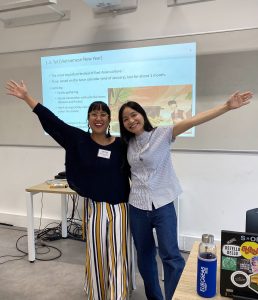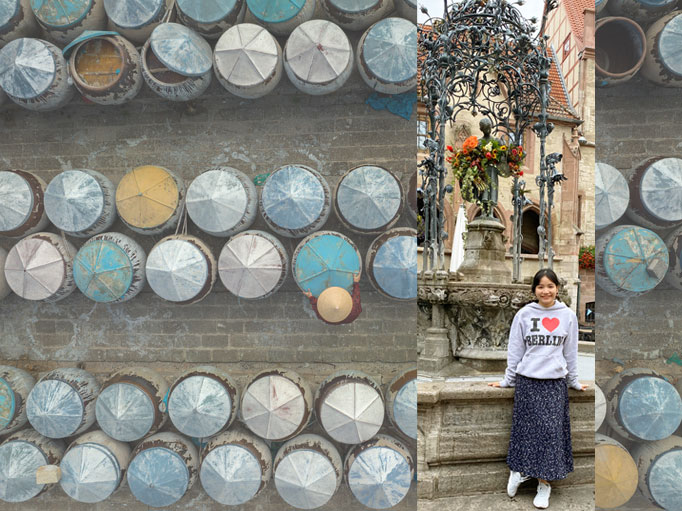Personal Information of the Applicant from German University:
- Prof. Dr. Claudia NEU(Division of Rural Sociology, Department of Agricultural Economics and Rural Development, Georg-August-University Göttingen)
Duration of Stay:
- June 25 to September 17, 2022
Aims:
- Studying adapted dietary patterns of Vietnamese migrants in Germany and advancing interdisciplinary collaboration.
Visited Researchers and Institutions in Germany:
- Prof. Dr. Liesbeth Colen, Nutrition and Agriculture, Department of Agricultural Economics and Rural Development, University of Göttingen
- Dr. Paul Christensen, Institute of Social and Cultural Anthropology, University of Göttingen
- Dr. Maximilian Spiegelberg, UNESCO Chair on World Heritage and Biosphere Reserve Observation and Education, Heidelberg University of Education
Participated events; conferences, seminars, etc. in Germany:
- The 12th European Association for Southeast Asian Studies (EuroSEAS) (Paris, France)
- Vietnamese Immigrating Garden in Germany (Kassel, Germany)
- Autumn Festival events at the Vien Giac Pagoda (Hannover, Germany)
Motivation for Kyoto-DAAD Programme
The perception of the so-called “Vietnamese miracle” phenomenon through the lens of food
I currently research on dietary acculturation of Vietnamese migrants in Japan and its role in cultural interaction and social integration between various migrants and ethnic minorities into the host society. An analogy is Germany which experienced various influxes of immigrants, including the 1975 Indochinese refugees and former guestworkers, but also more recently students and vocational trainees. It is essential to understand what prompted the perception of the so-called “Vietnamese miracle” phenomenon through the lens of food, which may complement our understanding of Japanese migration conditions contemporarily. Therefore, I applied for the program to extend my ongoing doctoral project and initiate networks with Europe-based researchers.
Achievements and Outcomes of ECRs’ Stay
Nurture professional network in Europe
By participating in the 12th European Association for Southeast Asian Studies (EuroSEAS) 2022 in Paris, France and being an exchange student at the University of Göttingen in Germany, I could exchange ideas and collaborate with numerous active researchers and thinktanks.
Elaborate the research’s theoretical and empirical accounts
During the three-month stay, I have carried out informant interviews, participatory observation and expert discussions in several main cities of Germany: Berlin, Munich, Hannover and Heidelberg. It helps me upgrade the notion of gastronomic multiculturalism, reinforce the study’s theoretical and analytical frameworks and verify the suitability of survey instruments.
Improve personal development on new skills
Personally, the mobility gave me opportunity to hone several abilities and skills related to time and project management as an independent researcher at unfamiliar research sites. I also learned about the value of work-life-balance for early-career researchers.
Outlook for the Project
This fieldwork gave me new possibilities for evaluating the long-term process of culinary culture interaction and social integration of transnational migrants in different reception contexts: Germany and Japan. I am going to continue the multinational project on the evolution of Vietnamese cuisine abroad and the transfer of traditional knowledge under inter-generational and inter-ethnic contacts as well as maintain reliable collaboration with research partners.

![[間:AI DA]: supporting international carrier development of early career researchers (ECRs)](/exchange/aida/wp-content/themes/kyoto-u-daad/img/logo-aida.png)



